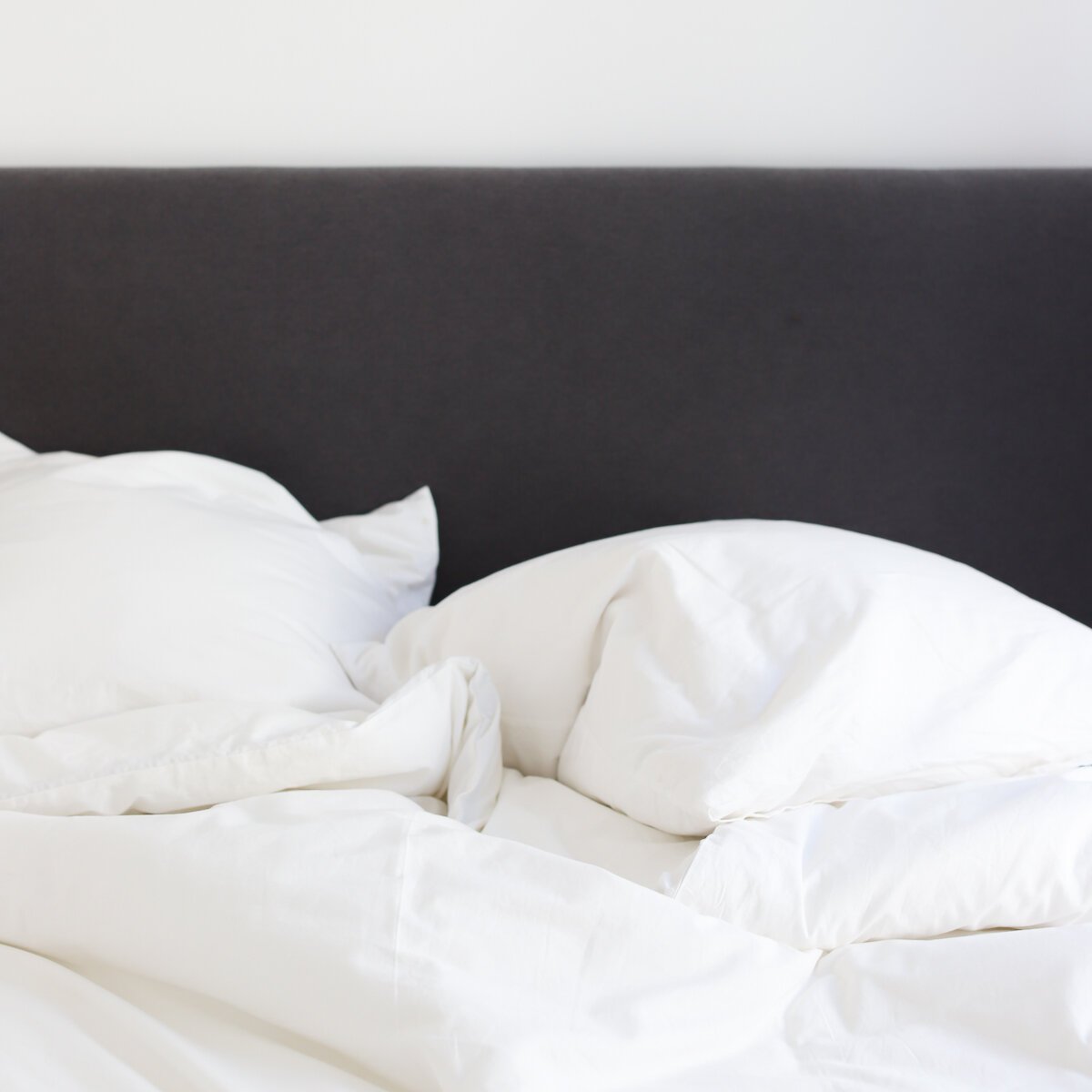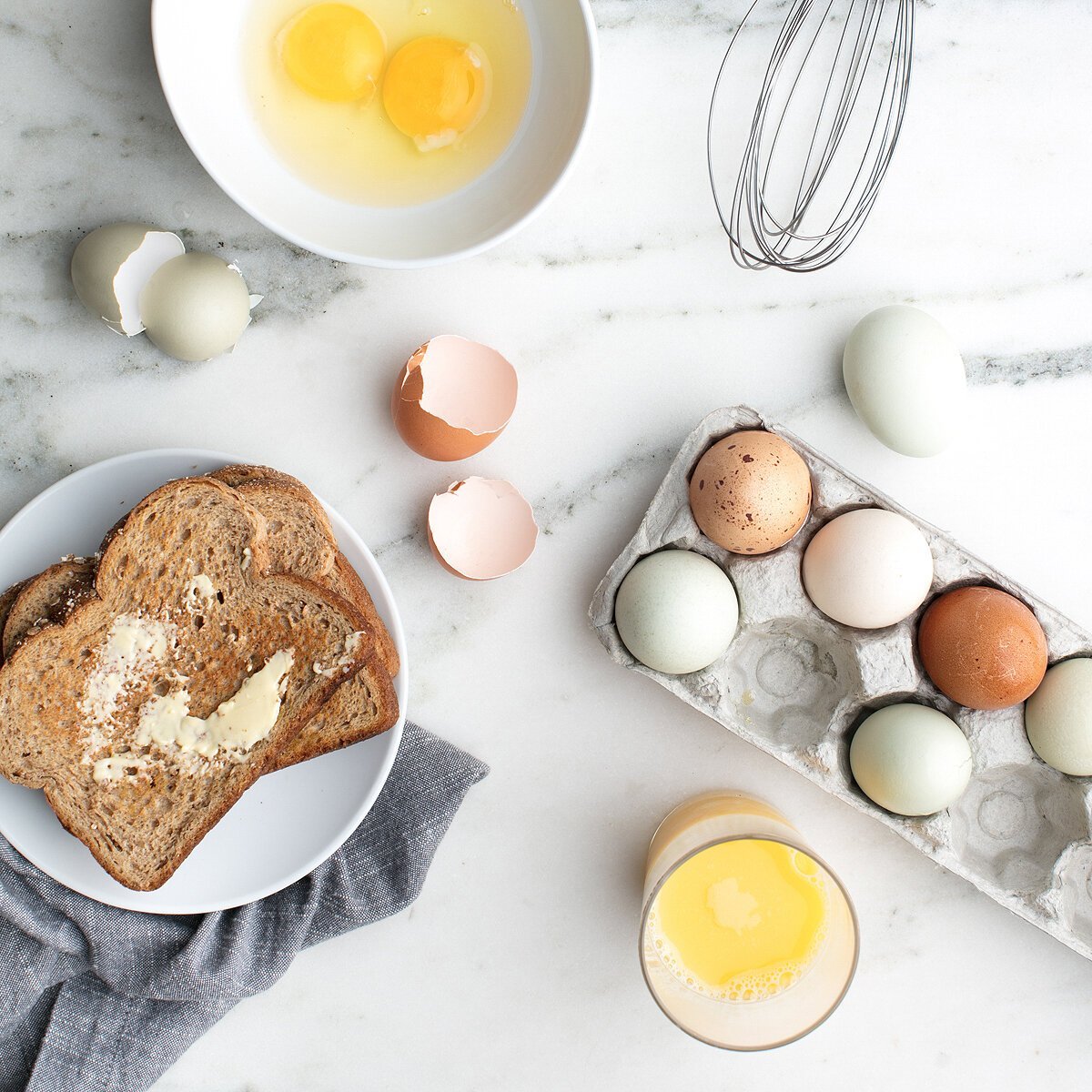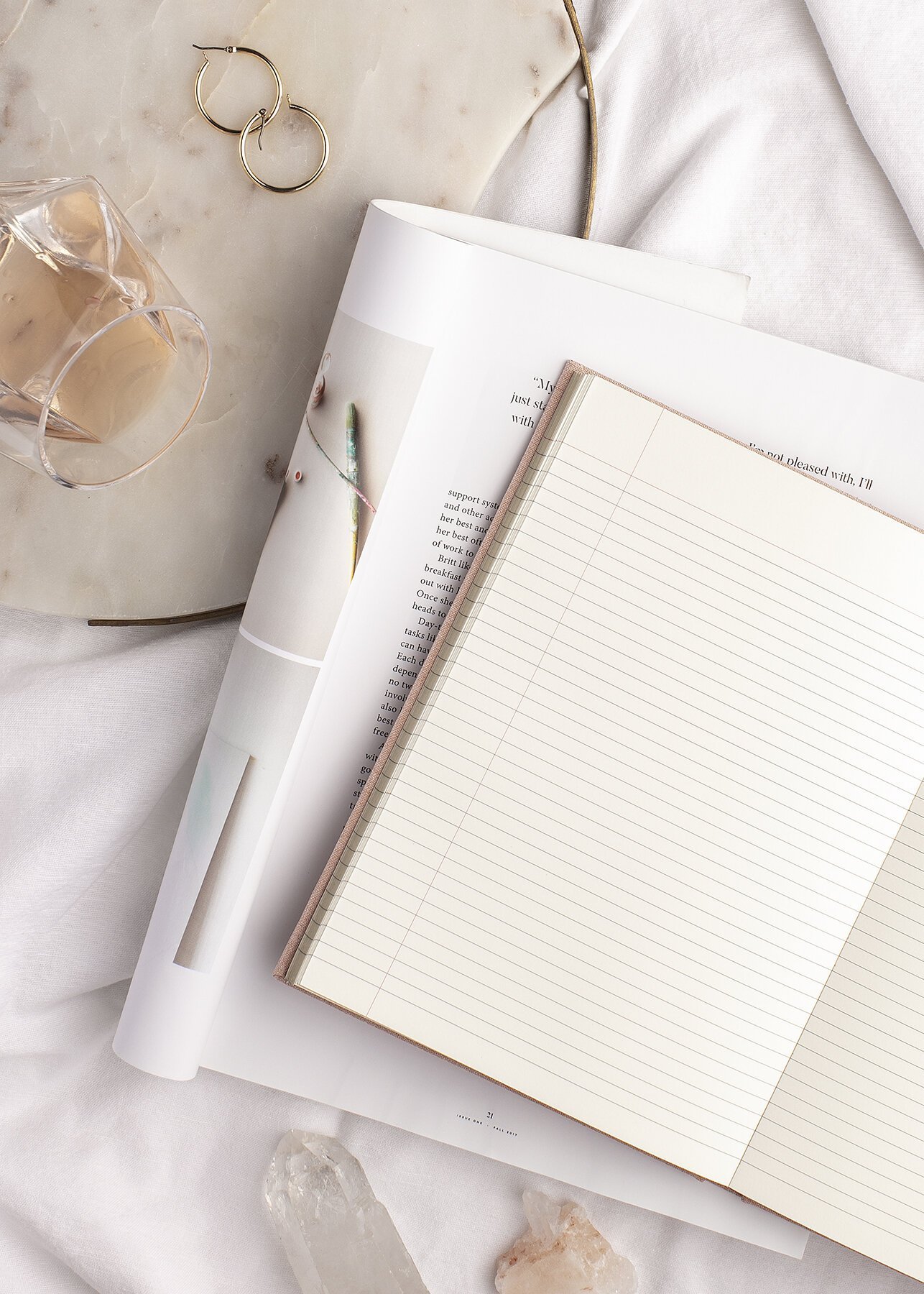How to Create a Morning Routine to Better Manage Your Anxiety
If you already have a morning routine, you probably understand the power it has on the rest of your day. If you don’t have a morning routine, you’ve probably heard that it’s a good idea to start one.
My own morning routine really didn’t take shape until COVID-19 slowed everything down. Before COVID, I found myself flailing about, reading all sorts of advice and trying to find that perfect mix of things to do so that my day would start out “right”. Unfortunately I just felt more anxious - not only did I not have a morning routine but I was also frustrated that the “text book” ideas were not working for me. If you can relate, today’s blog will help! Today I’m sharing how you can feel more grounded and confident to create your perfect individualized morning routine so that the rest of your day is a whole lot better.
Why a Morning Routine Is So Important
My own morning routine is the foundation of my self-care practice. I have a few variations on a theme, depending on the day of the week, but for the most part I do the same things each morning in order to balance my mind and energy. On the days I’m unable to do my morning routine, I notice my anxiety is higher and I struggle more throughout the entire day. But why?
Well, routines can help reduce anxiety. Our brains are hardwired to crave certainty. When our brains do not have enough information, they assume our survival is threatened. When this shift to survival mode occurs, fear and worry creep in and start to take over. In order to feel in control over the unknown, our mind ruminates over every possible scenario, or “what-if”. We want to figure out all the ways things could go wrong in order to feel more certain of the outcome. One way to alleviate anxiety is to create habits that remove some uncertainty from your life. If you have a certain routine each morning, you don’t have to worry about the uncertainty of “what comes next”.
Also, your body and mind only have so much energy to give out each day, and overusing your brain’s executive functions (e.g. regulating your behavior and emotions, problem solving, planning, decision making, etc.) is a key component in feeling depleted. When you use all that energy up, you’re left feeling fatigued, you might make poor decisions (or no decisions at all) and you might have a hard time controlling your emotions. So when you automate your morning, you don’t dip into that energy reserve first thing because you have eliminated some of the decisions you need to make throughout the day.
Finally, a healthy, low-stress morning routine can actually help to refill your energy so that you can go about your day with a sense of balance and grounded-ness. When I spend the morning focused on self-care, I tend to make healthier decisions throughout the day, like ending my work day on time or eating a healthy dinner. However, when I start my day stressed and overwhelmed, I usually end up stress eating a box of cookies or having a hard time controlling my emotions later on in the day.
What to Consider when Creating a Morning Routine
Create an individualized routine that works for you.
The very first thing to remember is that there is no such thing as the perfect morning routine. Yes, there are things that we can do to promote self-care first thing in the morning, but not all the “ideal” suggestions will be exactly right for you. According to Ayurveda, the sister science of yoga, all living things are made up of five elements: space, air, fire, water and earth. These elements are then woven together in different proportions to create three energies, or doshas. The three doshas are:
Vata Dosha (Ether + Air)
Pitta Dosha (Fire + Water)
Kapha Dosha (Water + Earth)
The doshas have particular functions in nature (e.g., the weather, seasons, time of day, etc.) and for each person they play very important functions in the body and mind. So depending on the season, the time of day and your own personal dosha constitution you will need different qualities of your morning routine to help keep you grounded.
For example, 6am-10am is the Kapha time of day. My own constitution is also Kapha, so from 6-10 in the morning, I am pretty sluggish, no matter the season. In order for me to feel balanced and grounded, I need to move my body first thing and drink coffee to stimulate my senses. If I wake up and immediately sit down to meditate, I fall asleep within seconds. So although many people suggest “meditating first thing in the morning” I personally need to wake my body and mind up before I can meditate.
Even if you don’t know anything about Ayurveda, it’s important to remember that you will need to try out a few morning routine ideas to see what resonates. It may take a little time to land on the “perfect routine” but just know that whatever you do land on will be perfect for you if you are left feeling calm, balanced and ready to take on the day.
Determine how much time you can actually spend on your morning routine and make it easy and fun!
Based on your individual circumstances, you may have a lot of time in the morning or you may have limited amounts of time to develop a routine. Again, you’ll have to experiment with what habits make you feel your best each morning and then determine how much time is needed. You might need to shift the time you wake up to make room for this new routine. But, only wake up earlier if you are getting enough rest or tend to be an earlier riser. If you are sleep deprived or struggle to get out of bed earlier, you don’t want to force a habit because you’ll end up feeling lousy and resenting it, which defeats the purpose.
If waking up earlier is not an option, consider what you can do in the amount of time you have. There is no right or wrong amount of time for a morning routine to be successful. It really does depend on what works best for you and your schedule. If you feel grounded and calm after 5 minutes of a morning routine, then that’s the perfect amount of time for you!
And whatever you choose to do, make it easy and fun! When you enjoy activities that can easily be integrated into your life, this new routine will quickly become a habit. You don’t have to create a 10-step process or completely change everything you are already doing - just add a few positive things that you enjoy and notice the impacts.
Remember, it’s OK if you do not follow your new routine perfectly.
Be prepared to skip your morning routine from time to time. Even though it feels amazing and seems easy to integrate at first, I guarantee there will be a morning when you decide to skip it and stay in bed. And, that’s OK. If you are mentally prepared to miss a day or two here and there, you will be less likely to beat yourself up for not being motivated to make it happen. It’s OK to take a break from time to time. Just be sure to check in with yourself if you are noticing you are taking more breaks from your routine than doing the routine at all.
Investigate what needs to shift in order for the routine to become more of an enjoyable habit.
Morning Routine Ideas
Below is a list of morning activities that might be perfect for your individual needs. Remember, these are just ideas and these are not the only options available to you! You definitely don’t need to do all of them (um, no one has that kind of time each day!), and whatever ones you pick can be done in whatever order that works best for you.
Clean your senses. Brush your teeth, scrap your tongue, wash your face and hands, etc. to help cultivate clarity in your day.
Drink a glass of room temperature water. Warm water will properly hydrate your body after a long night of sleep.
Make your bed. I don’t know about you, but when I make my bed first thing, I feel a sense of accomplishment right away. It’s an easy “chore” that helps set my own day in the right direction. And, it creates less clutter in my environment and my mind, which helps to reduce my anxiety.
Avoid your phone or the news first thing. This one is hard for me, but I’m working on it. The moment you turn on the TV to watch the news or check your phones to see what you missed overnight, your senses are flooded with tons of stimulation that can negatively trigger your nervous system. Generally, you tend to wake up calm and relaxed. Switching on that phone will dramatically change that feeling. And, it could derail your entire morning routine if you get sucked into a deep news feed scrolling session.
Move your body. Whether you need a morning run, a brisk walk, a yoga class or a gentle stretch, moving the body first thing will help to balance the heaviness of the morning. Moving your body builds heat and increases circulation of your fluids, which will help to start your day feeling lighter and more clear.
Practice gratitude. Start your day listing 3-5 things that you are grateful for. Research shows that practicing gratitude, especially first thing in the morning, can actually shift the way we think and see the world. The neural pathways in your brain actually start to shift over time and you end up training your brain to look for the good instead of the negative around you. This new way of seeing things will then help to reduce anxiety and overwhelm.
Eat breakfast mindfully. Have you ever slowed down enough to notice what you are eating? It’s a powerful practice. Pay attention to each bite without the distractions of your computer, phone, TV or conversations with others. Really notice how the food looks, tastes, smells, and what it’s texture feels like. Simply enjoying your food can bring your awareness to the present and increase your sense of gratitude for the wonderful meal you are enjoying.
Meditate. Sitting and noticing your breath or noticing your body’s sensations reduces stress and will slow down your mind. Even just a few moments of meditating on the present moment can restore your energy and regulate your body.
Journal. Journaling is a powerful way to get your thoughts and ideas out of your brain and reduce the amount of overthinking that can happen on a daily basis. Free writing is a wonderful technique to improve clarity. Start by saying an open ended statement. Some examples could be, “Today I feel…”, or “Today I am nervous about…”, or “My goal for the day is …”. Then put your pen to paper and let your hand quickly jot down the words. Don’t worry about grammar or penmanship … it’s almost like your hand is moving a bit faster than your brain can keep up. Just let the words flow out of you for 3-5 minutes. Then take a few moments to read back through what you wrote and notice any important takeaways.
Other ideas include:
Read a few pages of a book
Listen to your favorite podcast
Work on a puzzle
Be creative through art or music
Listen to music
So there you have it! You now know the reasons why starting a morning routine can positively impact the rest of your day and you don’t need to follow a “perfect” script to make it happen! The important thing is to find the self-care practices that you enjoy and help you feel calm, grounded and balanced, and to give yourself the right amount of time to do these activities based on your own individual schedule. My own morning routine has definitely helped to make the rest of my day a whole lot better and I know yours will do the same for you!







